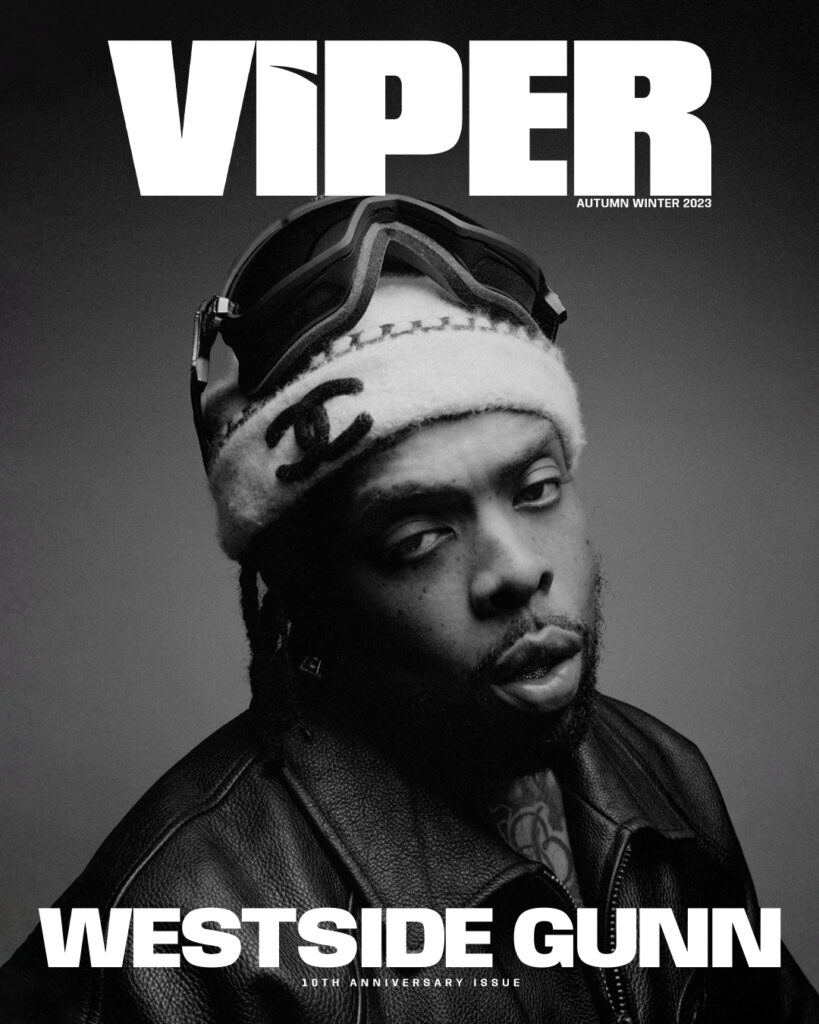MALEEK BERRY INTERVIEW: After a brief hiatus, British-Nigerian artist Maleek Berry returns with his highly anticipated album ‘If Love Was Enough’. In our exclusive conversation, he opened up about his musical rebirth, experimenting with new genres while staying true to his signature Afrobeat and R&B fusion. The album showcases fresh collaborations, rich production and heartfelt storytelling, offering a deeper glimpse into his evolution as an artist. We explored his creative journey, the influences that shaped this record, and what fans can expect from this exciting new chapter. ‘If Love Was Enough’ isn’t just a comeback, it’s a bold statement of purpose.
MALEEK BERRY INTERVIEW: After stepping away from music for a while, what’s the energy like for you right now as you finally drop your LP after all the buildup?
It’s just been amazing, it feels new again. I’m treating it like it’s my first rodeo, so I can just give it all I can. Obviously, the industry has changed so much since I last released. There’s a lot more bars in the Afrobeats culture, a lot more new artists. But it’s been amazing because my fans have been waiting. They’ve pretty much had enough. I can’t post a picture on IG without them telling me to drop a song or release a single [Laughs]. The reception has been amazing so far. My presence has definitely been missed, evidently. So I’m excited to feed them new music.
You mentioned at one point that you considered stepping away from music. Can you share what led to that moment?
During the COVID period I had a lot of moments where I wasn’t really inspired musically and I started going into a few other things as well, just to take up my time—like setting up other businesses. I went back to Lagos and set up a farm. I put that energy into creating the new Berry’s Room, something like a ‘Berry’s Room 2.0’. It’s the imprint I’m moving forward with, and I’ll be pushing and signing artists under it.
But overall, I think it just came from a place of being uninspired. It’s crazy because I’ve been speaking to people, and a lot of them now feel how I felt back then [laughs]. But now I’m more inspired than ever, and I think it’s probably just due to me taking time out. I can see everything from a much wider perspective. I have a lot more understanding of the music, the culture, and where it’s going.
Was there a specific experience or moment that made you decide to come back stronger?
What made me want to come back was seeing my peers, watching them thrive. I was sitting in the bleachers, and they were shooting three-pointers from the side of the court, you know? [laughs] but on a more serious note, just watching the culture expand, and watching Afrobeats get bigger and bigger. Just becoming what we’ve always seen it as, becoming what I’ve always envisioned it becoming. And I said, it’s time to finish what I started.
Which track on the album challenged you the most emotionally — not just musically?
Emotionally, probably ‘Who Be This One’ or ‘The Pain’. It’s very hard being vulnerable on songs, especially when you’re trying to be the cool guy [laughs].
Did you approach the collaborations on this album differently — more intentional, more organic, or more experimental?
I think every collaboration was organic. I tried to leave space for as much natural connection as possible because it just makes for better music, it makes for better songs, better songwriting, you know? I’m a fan of every artist that’s on the project too, so I think that also makes it easier.
How different was your creative headspace producing for yourself compared to crafting hits for others like Wizkid or Davido?
I mean, obviously, when I’m writing for myself, it’s a lot easier. When you’re writing for other people, you’ve sort of got to take yourself out of yourself—strip back your ego. You have to write from someone else’s perspective, and that takes a lot. You’ve really got to be ready to serve and let go of that whole “braggadocious” artist mindset. To be a good songwriter, to write or produce for other people, you kind of have to go through a bit of an ego death. But when I’m writing for myself, it’s exciting—it’s like, “oh, I can do anything. I can write from other people’s perspectives and still make it mine.”
What song from another artist perfectly captures the kind of emotion you try to put into your music?
I’d say Usher. Or, in terms of the emotion, because we’re talking R&B here, talking to the ladies [laughs] so maybe Jagged Edge. I’d say Chris Brown too, but Usher is more like that ‘8701’ album vibe.
What inspired the title ‘If Only Love Was Enough’, and how does it reflect the overall story of the album?
I think the title speaks for itself. Some people say love is love, but then you’ve got to go deeper—it depends on what kind of love you’re talking about. There are so many types of love, so many definitions, right? And even from a relationship standpoint, there are things that are deeper than love, like communication and emotional intelligence. It all just comes from me, experiencing life and getting older—realising that, there’s a lot more to it than just this four-letter word. Even though love holds a lot together, it’s deeper than that. Life is a lot more complex.
There’s a real nostalgic warmth to this project. Were there any specific albums or artists from the 2000s that you kept going back to while creating it?
I’d say Donell Jones as well. Yeah, definitely that ‘8701’ era of course [laughs]. Really everything from the 2000s. I’m talking 2000s Afrobeats too—like P-Square, Style Plus, Mo’Hits, D’Banj. That whole era and aesthetic. Because when you hear that music, there’s a certain feeling it brings. It just brings joy, even if you’re singing about sad songs.
You collaborated with some amazing artists on this album like Tiwa Savage, Ruger— what was it like working with them on this project?
Amazing—they’re so talented. Tiwa is a genius. Obviously, she’s a legend. She’s one of our staple superstars, and it was a pleasure working with her before. But this time, I really wanted to push the limits on the record we did, and I feel like she came correct. This is a version of her we’ve never heard before. I think people are really going to like it.
Ruger as well. We’ve got a record together. I love R so much. He’s actually always been a big fan of my music. Him referencing one of my biggest songs, ‘Bend it’ on the second verse of our song ‘Lately’, that was amazing. So yeah, I’ve got so much love for R. I feel like he’s going to be around for a long time too.
The album has both high-energy anthems and intimate, vulnerable moments — how did you balance those different vibes?
I think the best way to put it is—I wanted to compile all the different moods from my past projects, right? Each project was attached to a different version of me. ‘Last Days of Summer’ had more summery, orangey-yellow colors, moods, and feels. ‘Days of Winter’ had more purple and blue tones, with darker moods and sounds. So I wanted to bring those two worlds together—a little bit of everything from both—but this time, the AI version, the expanded version of it. The next-generation version, yeah.
How do you see this album influencing the next phase of your career or inspiring other artists in Afro-R&B?
Well, I mean, I don’t want to speak too soon. I hope it inspires the next generation for a long time, you know. I always try to create something that will outlast me and age well. Yeah, that’s my goal every time I write a song. So I’m hoping for that with this album.
Since your return, what’s been the most rewarding part of your musical journey so far?
I would say leaning back into starting this LP and getting it to the finish line—the most rewarding part is seeing the original concept, the one I had from the beginning, and seeing it all the way through. I feel like that’s probably the most rewarding part.
When you look back at your journey from South London to the global stage, what stands out the most?
Just releasing some music—releasing music that’s been able to touch different parts of the world I never expected to reach. We’ve gone to Australia, we’ve gone to so many states in the U.S., so just being able to have the music reach different parts of the world has been amazing. And knowing there are still so many places it’s going to touch—that’s been a blessing.
What’s one habit or routine that keeps you grounded through everything?
I try to go to the gym, I try to keep fit. I go at least four times a week—five if I can. I’ve been doing that consistently since the beginning, since I started working on the album. It’s really helped keep me consistent.
What’s your go-to comfort food after a long studio session?
Pounded yam and okra! That would send me right to sleep afterwards. That’s what they call a lockout [laughs].
Words Nickeeba Archer
Photography @kehindeasani





